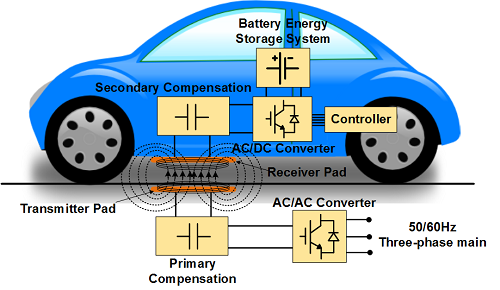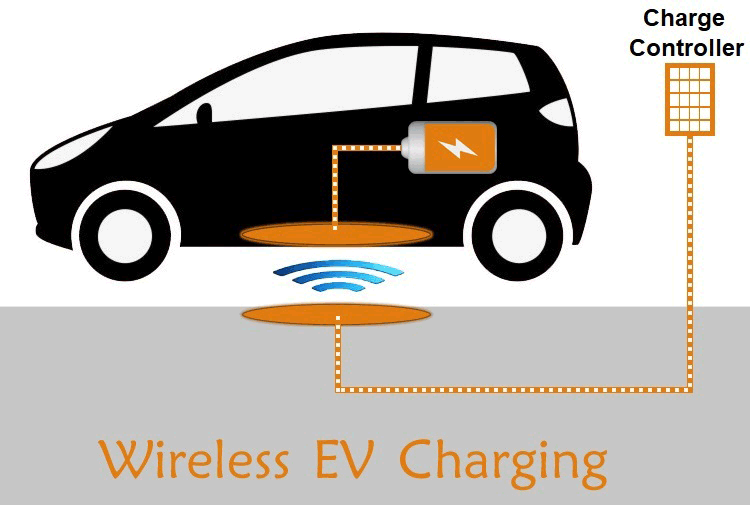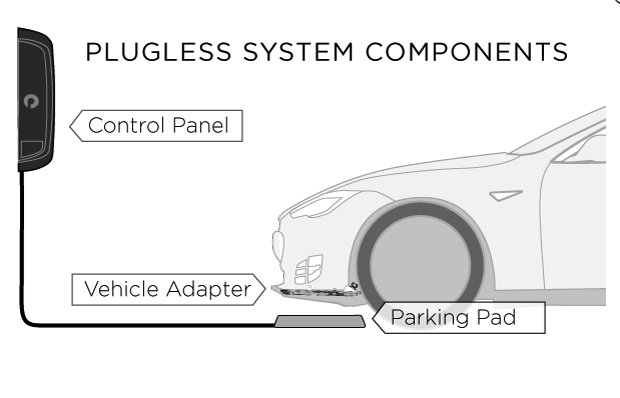Electric vehicle requirements for conductive connection to an ac dc supply emc requirements for off board electric vehicle charging systems.
Electric vehicle conductive charging system.
Iecá61851 21 2 2018 defines the emc requirements for any off board components or equipment of such systems used to supply or charge electric vehicles with electric power by conductive power transfer cpt with a rated input voltage according to iecá60038 2009 up to 1á000áv ac or 1á500áv.
Electric vehicle conductive ac charging system 1 0 scope this standard applies to charging electric road vehicles at standard a c.
It requires the use of a charging board as the power transmitter to deliver the power and a charging device with a built in receiver to receive the power.
This part of iec 61851 together with iec 61851 1 2010 gives the requirements for d c.
Enclosed pin and socket connection covers the main safety and interoperability relevant requirements for an electric vehicle power transfer system using a conductive automated charging device based on an enclosed pin and socket design.
Demand for charging stations has also increased with the growth in the sales of electric vehicles.
Sae j1772 also known as a j plug is a north american standard for electrical connectors for electric vehicles maintained by the sae international and has the formal title sae surface vehicle recommended practice j1772 sae electric vehicle conductive charge coupler.
Electric vehicle ev charging stations herein also referred to as dc charger for conductive connection to the vehicle with an a c.
According to iec 60038.
Its applications include charging handheld devices like phones and electric toothbrushes rfid tags induction cooking and wirelessly charging or continuous wireless power transfer in implantable medical devices like artificial cardiac pacemakers or electric vehicles.
Once the charging board recognizes the valid receiver the charging begins.
Specifically in this case standards users shall select proper means to fulfill safety requirements in the system of charging station and electric vehicle.
And up to 1 500 v d c.
Even though electric vehicle charging is new the technology has rapidly developed in the recent past.
Supply voltages as per is 12360 iec 60038 up to 1000 v and for providing electrical power for any additional services on the vehicle if required when connected to the supply network.
To overcome these hurdles continental engineering services ces is developing an automated conductive charging system that we call charging robot this innovative conductive charging robot offers the driver effortless and time saving charging.
This system will increase the user acceptance of electromobility enormously.
Input voltage up to 1 000 v a c.
What was previously a technology that allowed an electric vehicle to charge fully in 8 hours has now progressed to allowing full charge within 30 minutes.
Conductive power transfer uses a conductor to connect two electronic devices in order to transfer energy.
Electric vehicle conductive dc charging system 1 0 scope this standard gives the requirements for dc electric vehicle ev charging stations herein also referred to as dc charger for conductive connection to the vehicle with an ac or dc input voltage up to 1000 v ac and up to 1500 v dc as per is 12360 iec 60038.
The intent is to define a common electric vehicle conductive charging.
Conductive wireless charging or simply conductive charging uses conductive power transfer to eliminate wires between the charger and the charging device.







